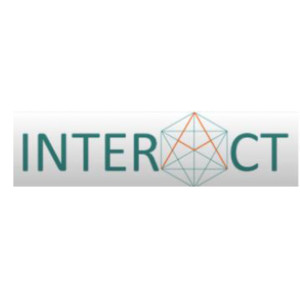 \
&
Contact us
\
&
Contact us
 \
&
Contact us
\
&
Contact us
Published on | 2 years ago
Last updated on | 3 weeks ago

sarah.stroobants@fwo.be
With this pilot the Commission wants to tackle concerns that the evaluation process could be perceived as biased towards well-known organisations in countries with better performing Research and Innovation systems. The Commission indicates that a recent independent study has not revealed such a bias.
The pilot aims to identify whether the implementation of blind evaluation within the legal requirements and operational context creates any difficulties. If this is not the case, it might lead to a modified approach, with a greater use of blind evaluations, which could effectively mitigate the risk of real, potential or perceived reputational bias.
The recording of a Commission information webinar on the topic is available here. The slides used during this webinar can be found in attachment.
In the Horizon Europe Work Programme 2023-2024, all first-stage proposals of two-stage call topics will be evaluated blindly (except one call for Widening).
The concept of blind evaluation requires that experts evaluators do not know the consortium structure and the applicant(s) involved. To accomplish this, the following safeguards are in place:
Thus, applicants submitting a proposal under the blind evaluation pilot must take into account a new admissibility criterion: they must not disclose their organisation names, acronyms, logos nor names of personnel in Part B of their first-stage application (see General Annexes A &E). If identification as listed here above is mentioned by applicants in the proposal’s Part B, the proposal will be inadmissible.
In addition, names of proposers or their organisations should not be potentially identifiable indirectly, via, for instance, links to web pages or through references to their role and previous experience. The proposal can include references to their own publications if there is no emphasis that the publication is authored by one or more of the proposers. The proposal will be declared inadmissible if its anonymity is not respected in the part B of the application. Information on the identity of participants should be included only in proposal Part A.
The template of the standard application form for stage 1 applications has been updated accordingly and now includes a dedicated page with guidance for blind evaluations and annotations in the template text to guide applicants. Note that this template serves only as an example. The actual forms, provided in the online submission system under the Funding and Tenders Portal, might differ from this example.
The following extract from the dedicated page with guidance for blind evaluations (taken from the template of the standard application form for stage 1 applications) provides concrete examples:
In the different sections of the standard application form template, annotations have been added to remind applicants to pay special attention not to expose their identity. Herewith two examples (Excellence part):
It is important to keep in mind that stage 1 will only assess the excellence and impact criteria, whereas the quality of the partners and of the consortium composition (including relevant previous publications, achievements & projects of the consortium partners) will be assessed only in stage 2. More details about the two-stage submission procedure are available in this dedicated infosheet.
The legal basis for this pilot can be found in Article 28 of the Horizon Europe Regulation:
Article 28 Award criteria and selection
[…] 4. The Commission and other funding bodies shall take into account the possibility of a two-stage submission and evaluation procedure and where appropriate, anonymised proposals may be evaluated during the first stage of evaluation based on one or more of the award criteria referred to in paragraph 1.
We offer news and event updates, covering all domains and topics of Horizon Europe, Digital Europe & EDF (and occasionally, for ongoing projects, Horizon 2020).
Stay informed about what matters to you.
By signing up, you can opt in for e-mail notifications and get access to
a personalised dashboard that groups all news updates and event announcements in your domain(s).
Only for stakeholders located in Flanders

Professor Inez Germeys leads the Center for Contextual Psychiatry at KU Leuven, which is a large multi-disciplinary research group focusing on the interaction between the person and the environment in the development of psychopathology. She has received a European Research Council (ERC) Consolidator grant (INTERACT) and Proof of Concept grant (IMPACT). With these grants professor Germeys and her team researched a new mobile self-management therapy for patients with a psychotic disorder. The Acceptance and Commitment Therapy in Daily Life (ACT-DL) was further developed for the clinical environment. In line with that the Horizon 2020 IMMERSE project aims to thoroughly evaluate strategies, processes, and outcomes of implementing a digital mobile mental health solution.